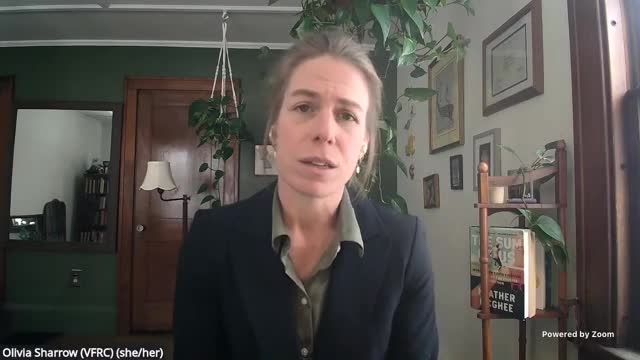Free clinics urge continued state funding as demand and dental needs rise

Summary
Vermont’s Free and Referral Clinics and the People’s Health and Wellness Clinic told a legislative committee that a state appropriation of about $1.5 million managed by the Department of Health covers roughly half of the network’s operating expenses and is critical to keeping no-cost medical and dental services available.
Vermont’s Free and Referral Clinics and the People’s Health and Wellness Clinic told a legislative committee that a state legislative appropriation managed by the Department of Health is critical to keeping a network of free clinics open and responding to rising demand.
"Vermont’s Free and Referral Clinics, VFRC, is a statewide association that serves eight free health care clinics," Olivia Sherrow, executive director of Vermont’s Free and Referral Clinics, said. "All services provided at these clinics are free, always. There's no billing, no insurance billing, no sliding fee scale."
Sherrow told the committee the network cared for more than 13,000 patients in 2024; more than one quarter of those patients were uninsured and 45 percent were underinsured. She said about 20 percent of patients did not have a primary care provider, more than 40 percent were at or below 200 percent of the federal poverty level, and roughly 10 percent of patients are best served in languages other than English.
"Our primary funding source is a legislative appropriation. It's just over $1,500,000 and it's managed by the Department of Health," Sherrow said. She described the funds as "Medicaid administrative funds," and said roughly half of that appropriation is federal money and half is state. Sherrow said the appropriation covers just over 50 percent of the network's collective operating expenses and that the governor's budget proposed level funding for fiscal year 2026.
Sherrow described two models in the network: free clinics that provide medical, dental and mental health care primarily through volunteers, and referral clinics that provide insurance navigation and help patients complete hospital financial assistance applications. She said one referral clinic provided about $500,000 in free prescriptions in 2024.
"Using this framework in 2024, we estimate that our dental and medical services led to a savings of $5,000,000 and avoided emergency room and hospitalization charges," Sherrow said, characterizing the appropriation as a strong return on investment.
Dan Barlow, executive director of the People’s Health and Wellness Clinic in Barre, described local impacts of the appropriation. "This allowed us to expand our oral health care program for the first time in a decade," Barlow said. He said his clinic saw more than 100 dental patients last year after expanding services, added extraction services, bought new equipment and expanded hygienist hours.
Barlow said the clinic operates with a small paid staff plus about 40 volunteer clinicians and runs specialized monthly clinics for migrant farmworkers and other non–English-speaking patients. He and Sherrow stressed that the clinics often help patients navigate hospital financial assistance applications and language barriers; Sherrow said some clinics have built bilingual staffing and signage partnerships with nearby hospitals to reduce barriers to care.
Oral health emerged as a focal point. Barlow said many adult patients have never seen a dentist, some have severely damaged teeth related to substance use disorder, and some previously resorted to self-extraction. He said a pair of full dentures would cost roughly $3,600, while an annual Medicaid dental allowance in Vermont is about $1,500.
"Vermont is one of a handful of states that does not allow Medicaid recipients to use their dental allowance to purchase dentures," Barlow said, and he suggested changing that policy would materially improve patient outcomes.
Sherrow and Barlow also warned of system-wide pressures that could increase demand at free clinics: worsening access to primary care, rising insurance premiums and changes to Medicaid eligibility or subsidies. Sherrow said the referral pathway from free clinics into the broader primary care system has constricted, leaving patients in the free clinics longer and increasing demand for ongoing services.
Committee members asked follow-up questions about funding sources and service gaps. Sherrow said the other half of the clinics' budgets come from a mix of fundraising, individual donations, some foundation grants and occasional town appropriations. No formal votes or motions were recorded during the presentation.
The presenters offered to provide the committee with additional detail about how extra funding would be used, and Barlow said he could connect legislators with his dental staff for technical detail on oral-health needs.
No formal committee action was taken on funding during the session; presenters asked legislators to keep the clinics in mind as broader policy and budget decisions move forward.

